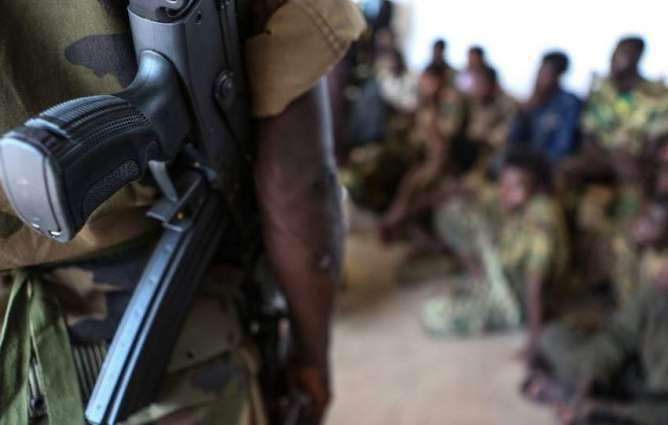The Central African Republic (CAR) peace agreement, which both the government and the African Union, the organizer of the peace talks, labeled historic, requires the political will of all parties involved, with establishing actual peace between individual communities to become one of the more difficult tasks, experts told Sputnik
MOSCOW (Pakistan Point News / Sputnik - 15th February, 2019) The Central African Republic (CAR) peace agreement, which both the government and the African Union, the organizer of the peace talks, labeled historic, requires the political will of all parties involved, with establishing actual peace between individual communities to become one of the more difficult tasks, experts told Sputnik.The Central African Republic has been suffering from a drawn-out conflict since a coup in 2013. Much of the fighting in recent years has been between the Muslim Seleka and Christian anti-Balaka militias.
On February 5, car President Faustin-Archange Touadera and leaders of 14 armed groups signed a peace deal at talks in the Sudanese capital of Khartoum. The following day, the deal was finalized and inked in the CAR capital of Bangui.
Experts recalled that attempts to put an end to hostilities in the country had been undertaken before, though without ever delivering a long-lasting solution to the crisis due to the failure of all sides to take a responsible approach to fulfilling their commitments.
"This is not the first [peace agreement]. In CAR there have been numerous deals signed with the armed groups making up a part of Seleka under [CAR] President [Francois] Bozize ... We had many international meetings aimed at finding an agreement ... and every time, there was a deal or recommendation which could pave the way to peace, but all of them failed," Roland Marchal, a research fellow at Sciences Po Center for International Studies (CERI), told Sputnik.
According to Marchal, the main reason previous arrangements collapsed was because of the sides' irresponsible approach toward complying with agreements.
"We are dependent on the goodwill of the parties. The government must do things, the armed groups must do theirs. What we saw with the previous agreements is that both the government and the armed groups tried implementing this agreement in their personal interest in a biased, if not illegal, manner. It explains why the crisis, instead of being settled, continued and deepened," Marchal explained.
Marchal also suggested that the agreement's success would depend a lot on the feasibility of its provisions.
"We have to see whether this agreement can be implemented, because there are peace agreements that are unrealistic, and whether there is a goodwill from both sides, at the same time," Marchal reiterated.
End Of Violence Main Achievement
Jonna Both, a postdoctoral researcher at Leiden University, praised the fact that the agreement brought an end to hostilities in the Central African Republic, while at the same time sharing Marchal's concerns regarding the possible challenges entailed in the deal's implementation.
"So peace has been obtained, at least for the moment ... For the moment obtaining the end of all hostilities is an important achievement. But in the long term one can foresee many challenges," Both told Sputnik.
Both, however, predicted that difficulties in the deal's implementations might lie at the level of local communities and neighborhoods.
"A lot of tensions will need to be resolved for people to live together in peace again," Both stated.
The two experts expressed concerns over the fact that the new peace agreement granted an extended role to the CAR armed groups.
According to Both, the new deal not only empowered the militias' position in the future government but also gave them a strong say in reconciliation process and justice.
"Their involvement in the justice and reconciliation process is raising particular concerns: will victims dare to try to obtain justice when the perpetrators are all over in powerful positions? In other countries we see that this has been impossible," Both stated.
Marchal, for his part, argued that armed groups started to represent various population groups without actually asking the people.
"People recognize the armed groups not from a political point of view, but because those are groups of vigilantism. But the fact that they provide protection [to certain groups of population] does not enable them to politically speak in one's name. I think that the African Union and the international community did not take this important nuance into consideration," Marchal stated.
The volatility of the armed groups' leadership was mentioned by Marchal as another factor calling into question the future of the deal.
"[These are movements] that do not have strong organization, so there are no command chains in most of them, so their chief decides something and his deputies do not respect this decision ... These movements are capable of being very united at one moment, and very divided at the other," Marchal warned.
He in the meantime reiterated that the CAR government also was liable for the agreement's fate, stressing that the country's crisis stemmed from the way the CAR state was functioning rather than the military groups' activities.




